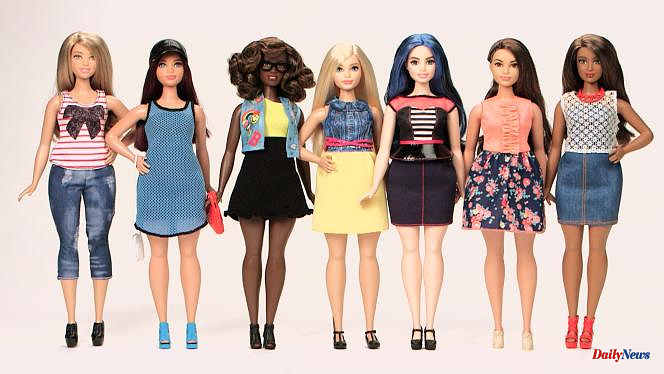The Barbie doll does not celebrate a particular birthday in 2023. So we should probably link the broadcast of the documentary And God Created Barbie, by Julie Delettre and Gabriel Garcia, directed by Julie Lazare, to the release of the film Barbie, by Greta Gerwig, expected this summer on the screens.
Given the length of the film (1 hour and 26 minutes), we will admit to having wondered if the subject deserved such developments; after watching it, we will agree to have learned a lot of things throughout a varied and abundant decryption. The authors return to the story of this doll marketed on March 9, 1959 by the Mattel brand, founded in 1945 in California, by Harold "Matt" Matson and Elliot Handler (hence the "suitcase name" Mattel).
Desexualization
Mrs. Handler had returned from a trip to Europe with, in her luggage, the Lilli mannequin doll, produced since 1955 by a German company. She suggested to her husband to have a creature made that could, in the same way, be dressed (and undressed) at will thanks to real miniature clothes. The husband did not believe it at first, still unaware that his toy company was going to find his golden-haired hen there, if one dares to say.
The documentary then recounts the desexualization of a figurine yet inspired by the generous forms of Jayne Mansfield: clearly "busted", Barbie was nevertheless deprived of nipples. Too stereotypical, she had to adapt: from 2016, Mattel was forced to offer less perfect bodies, as well as different hair types and skin colors.
A disabled doll in a wheelchair will even be marketed, then an albino Barbie, a transgender Barbie (inspired by actress and activist Laverne Cox) or another suffering from vitiligo – not mentioned in the documentary, any more than the Barbie in a hijab , a significantly more divisive subject. On April 25, Mattel released a Barbie with Down syndrome.
Living Barbies
Mattel has always closely monitored the image of its 29 centimeter creature: in his song Barbie (1986), Lio recounted "the decay of the Barbie doll who ended up committing suicide", in the words of the plaintiffs who sued the author and producer of the title but lost their lawsuit. The toy company did not succeed either by attacking the group Aqua for another hit, Barbie Girl (1997).
The documentary abounds in testimonials, of unequal quality: Frédérique Bel, Zahia Dehar, Arielle Dombasle, Lio, Olivier Rousteing, Chantal Thomas, and football player Amandine Henry, who regrets that the figurine bearing her likeness made by Mattel did not have been distributed. As well as women journalists, essayists, museum curators (the sequence on Barbie dolls dressed by Yves Saint Laurent is astonishing), a researcher in arts and gender studies... And living Barbies, ready to take all the risks caused by plastic surgery operations.
The ending is fun. "And Ken, in all this?" asks the documentary about the doll's male partner. Lio, faithful to his salutary outspokenness, settles his account in a few words: "Ken? To me, he's a moron! But has she seen the new non-binary Ken with long blonde hair?












